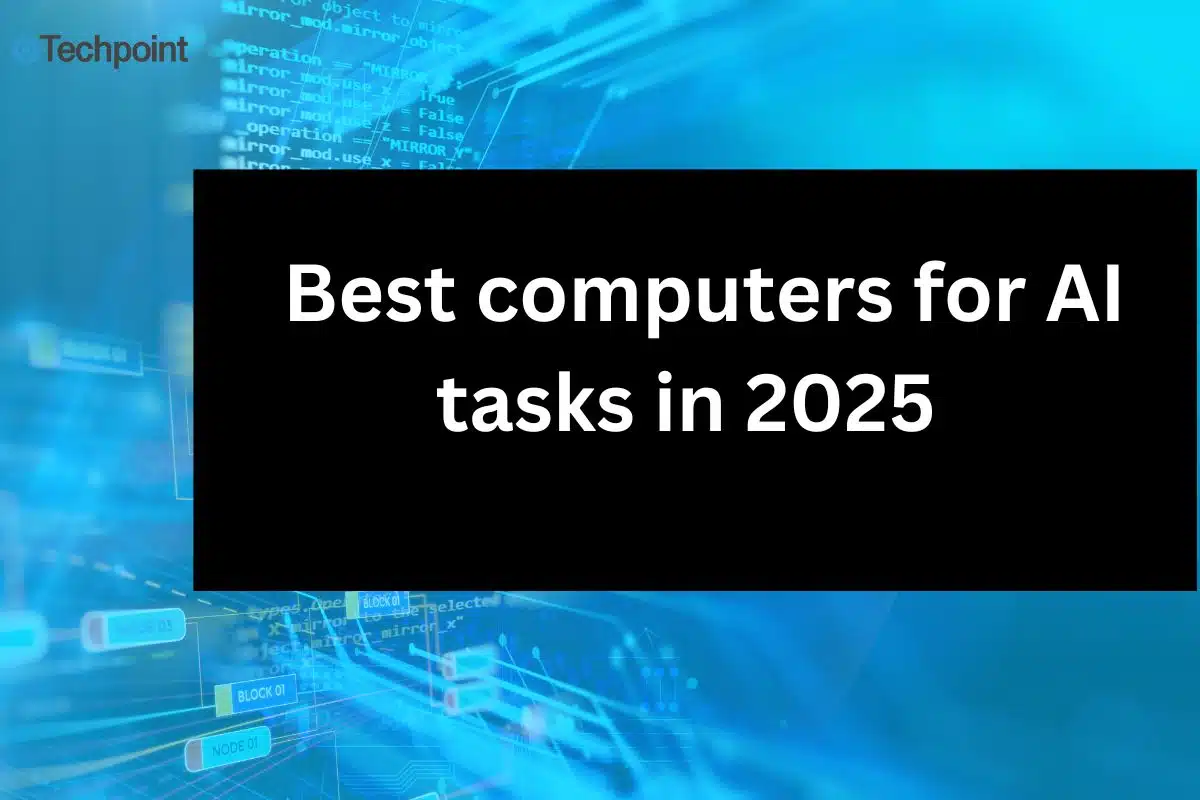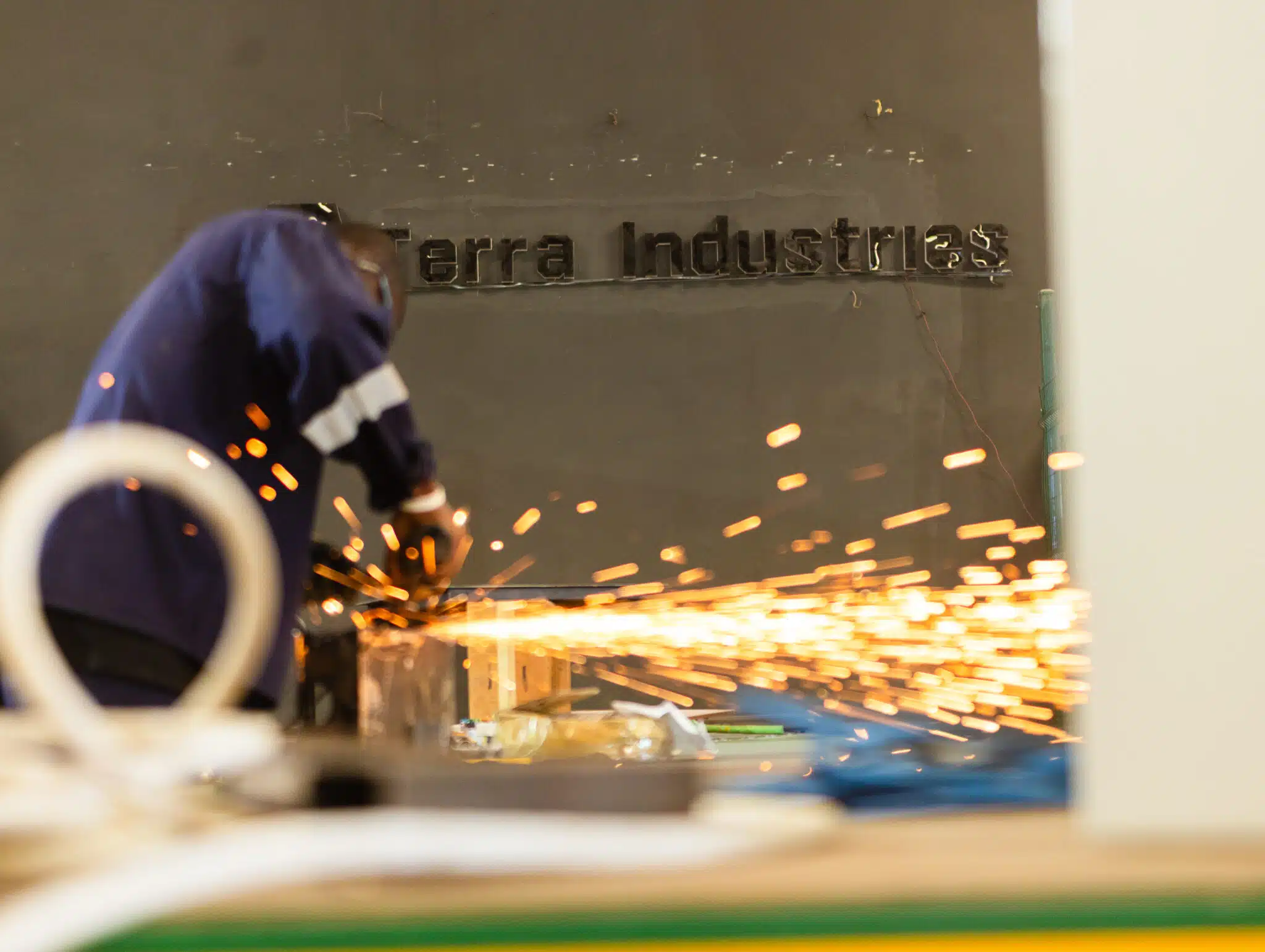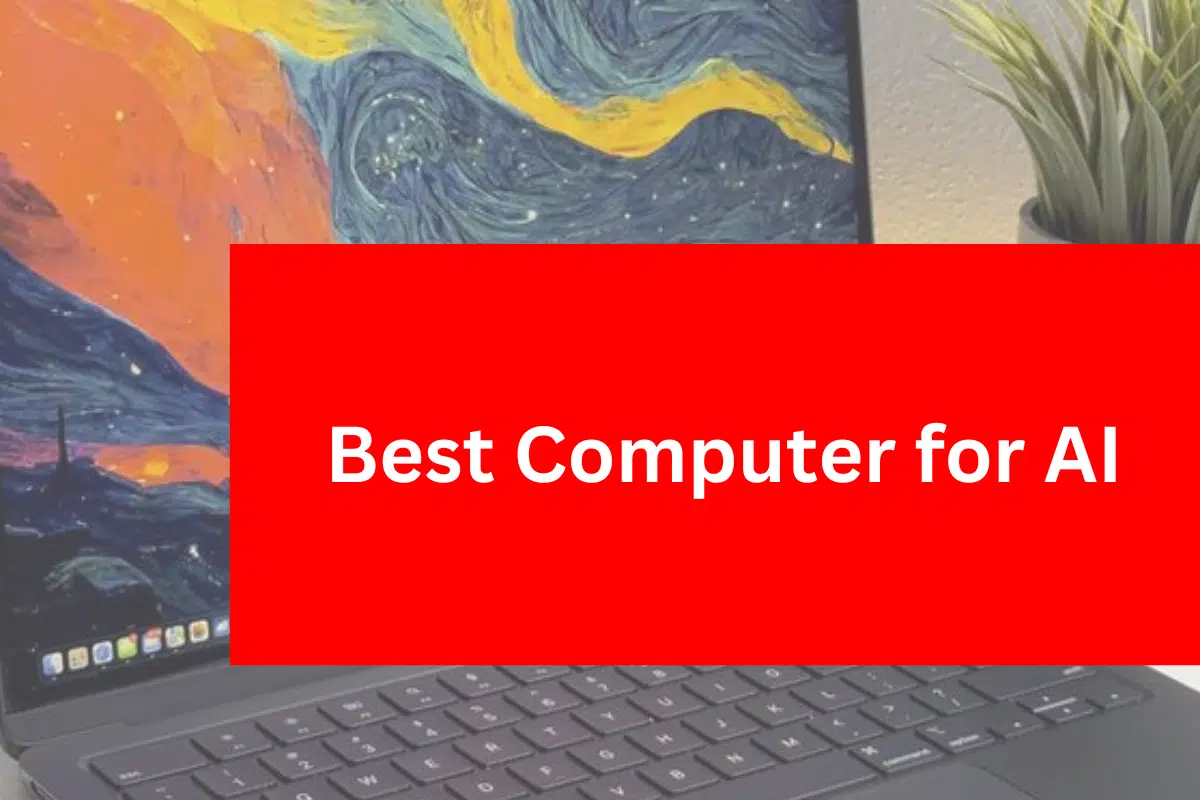
The reception of AI functionalities in many areas of our work lives has brought about a surging interest in AI-ready computers. Yet, choosing the right computer that offers fast speed, reliability, and specific capabilities is not always a walk in the park, all thanks to the diverse innovations breaking into the technological market daily.
This article showcases the best computers for AI tasks in 2025, ranging from portable laptops to powerful desktop systems. Our selections feature advanced GPUs, processors, memory, and storage designed to flawlessly interpret and execute AI workloads.
It’s no matter if you’re an experienced developer or just starting out as a Student in AI imaginative development, our guide will help you find ideal computers that meet your needs and keep you locked in. Discover the top eight best computers for AI tasks in 2025 and see what sets them apart.
Key takeaways
- Powerful GPUs, ample RAM, and fast storage are essential for AI tasks.
- Budget options like the MSI Katana GF66 balance cost and performance.
- Future-proof systems ensure longevity as AI advances.
- Gaming laptops can handle basic AI tasks effectively with the proper configuration.
Key features to look for in an AI-ready computer
When investing in an AI-ready computer, focus on the following specifications:
- GPU Power: Look for GPUs with CUDA cores and high VRAM, such as NVIDIA’s RTX series, for efficient parallel processing.
- CPU Performance: Multi-core processors like Intel Core i7 or AMD Ryzen 9 provide the computational power needed for AI tasks.
- RAM: At least 32GB is recommended for handling large datasets, with ideal expandable options.
- Storage options: NVMe SSDs ensure fast data access and write speeds, which are critical for AI workflows.
- PCIe Support: Motherboards supporting PCIe Gen4 or Gen5 enable faster data transfer speeds and compatibility with future hardware upgrades.
- Cooling Solutions: Effective cooling mechanisms prevent overheating during intensive computations. Buy a computer with thermal management capabilities.
Top computers for AI tasks in 2025
- HP Spectre x360 14
- Lenovo ThinkPad X1 2-in-1 (Gen 9)
- Asus Zenbook S 16 (UM5606);Copilot PC
- Dell XPS 13 (Lunar Lake)
- Apple MacBook Air M3 (13-inch)
- Dell XPS 16
- Acer Nitro 5
- MSI Katana GF66
1. HP Spectre x360 14
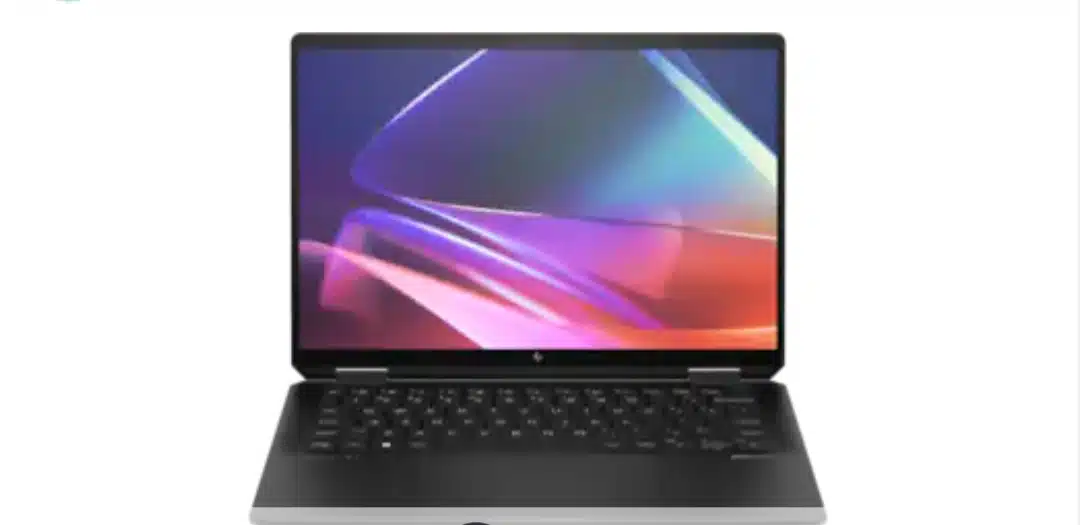
This 2-in-1 convertible and lightweight laptop is ideal for AI developers who value portability without sacrificing performance.
| Specifications | Details |
| Operating System | Windows 11 Home Single Language |
| Processor | Intel Core Ultra 7 155H |
| Chipset | Intel integrated SoC |
| Graphics | Integrated, Intel Arc Graphics |
| Memory | 16 GB LPDDR5x-7467 |
| Internal Storage | 1 TB PCIe Gen4 NVMe TLC M.2 SSD |
| Display | 35.6 cm (14″) diagonal, 3K (2880 x 1800), OLED multitouch-enabled |
| Touchscreen | Yes |
| Brightness | 400 nits |
| Dimensions (W x D x H) | 31.37 x 22.04 x 1.69 cm |
| Weight | 1.44 kg |
| Cloud Service | 25 GB Dropbox storage for 12 months |
| Battery Type | 4-cell, 68 Wh Li-ion polymer |
| Battery Life | Up to 13 hours |
| Battery Recharge Time | Approximately 50% in 45 minutes |
| Product Color | Slate blue aluminum |
| Camera | HP Wide Vision 9MP IR camera with camera shutter, temporal noise reduction, and integrated dual array digital microphones |
| Ports | USB Type-A 10Gbps (HP Sleep and Charge); 1 headphone/microphone combo; 2 Thunderbolt 4 with USB Type-C 40Gbps (USB Power Delivery, DisplayPort 2.1, HP Sleep and Charge) |
| Manufacturer Warranty | 1 year. Terms and conditions vary by country. Certain restrictions and exclusions apply. |
Features: High-quality screen, spacious keyboard, flexible 2-in-1 design.
Why Buy
- Lightweight and portable
- Powerful Intel Arc GPU and CPU
- Long battery life.
Why not Buy
- Sparse ports selection.
- Always-ON OLED light.
- Overheating.
- Limited upgradability and fairly good keyboard
Latest Price: Starting at $1,499.99
Best For: Casual AI developers and data analysis.
2. Lenovo ThinkPad X1 2-in-1 (Gen 9)
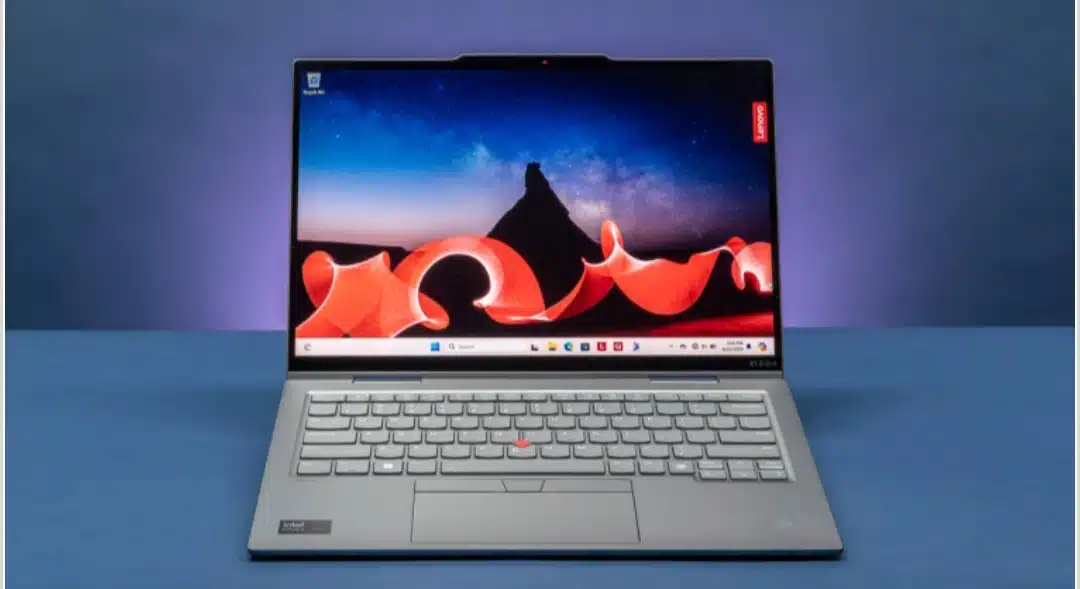
Known for its durability and satisfying keyboard, the Lenovo ThinkPad X1 2-in-1 (Gen 9) is a go-to for professionals in AI development.
| Specifications | Details |
| Processor | 11th Gen Intel Core i7 |
| Memory | 64 GB LPDDR5x |
| Storage | 2 TB PCIe SSD |
| Display | 14″ 2.8k (2880 x 1800) OLED touchscreen, Dolby Vision14″ WUXGA (1920 x 1200), touchscreen |
| Graphics | Integrated Intel Iris Xe Graphics |
| Weight | Starting at 1.33kg / 2.94lbs |
| Battery Type | 4-cell, 54.7 Wh Li-ion |
| Battery Life | Up to 12 hours |
| Battery Recharge Time | Supports Rapid Charge: 80% in 1 hour |
| Camera | 1080p FHD & infrared (IR) with webcam privacy shutter8MP & IR Mobile Industry Processor Interface (MIPI) with Computer Vision & webcam privacy shutter |
| Keyboard | ThinkPad TrackPoint Keyboard (1.5mm travel)Spill-resistant Glass TrackPad with three buttons (120mm / 4.72″) Glass Haptic TouchPad (120mm / 4.72″)Backlit with white LED lighting Air intake keys Dual-function TrackPoint: navigate cursor or double-tap to open TrackPoint Quick Menu |
| Ports | 2 x USB-C Thunderbolt™ 4 (40Gbps)2 x USB-A (5Gbps)Headphones/mic combo HDMI 2.1 (supports resolution up to 4K@60Hz) Optional: Nano SIM slot |
| Audio | Dolby Atmos 2 x speakers2 x 360-degree quad-array microphones Dolby Voice certified for professional conferencing solution |
| Product Color | Luna grey |
| Dimensions (H x W x D) | 15.49mm x 312.8mm x 217.65mm / 0.61″ x 12.31″ x 8.57″ |
| Security | Fingerprint Reader, Human Detection, Facial recognition, Firmware Shield |
Features: Diverse connectivity, two Intel processors.
Why Buy
- Selective webcam.
- Versatile 2-in-1 design with touchscreen.
- Excellent keyboard.
Why not Buy
- Average battery life for extensive use.
- Dull graphic design.
Latest Price Deals: Visit the official store.
Best For: Business professionals working on AI-related tasks.
3. Asus Zenbook S 16 (UM5606); Copilot PC
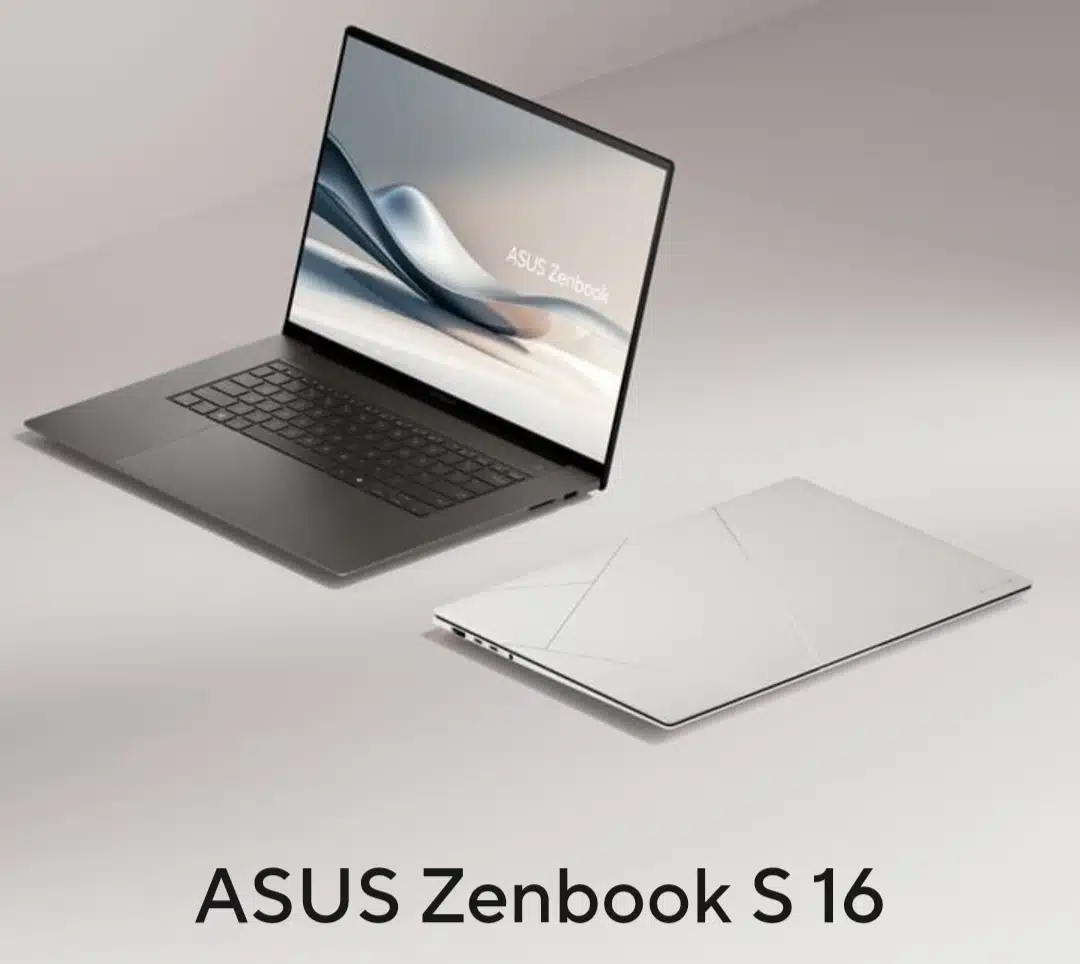
The Asus Zenbook S 16 offers a larger 120Hz touchscreen and more robust specifications than its 14-inch counterpart.
| Specifications | Details |
| Processor | AMD Ryzen™ AI 9 365 / AI 7 350 Processor |
| Operating System | Windows 11 Home or Pro |
| Display | 16.0″ 3K OLED, 120Hz, Non-Touch / Touch (stylus support |
| Graphics | AMD Radeon 880M / Radeon Graphics |
| Memory | Up to 24GB LPDDR5X |
| Storage | 1TB / 2TB M.2 NVMe PCIe 4.0 SSD |
| Battery | 78WHrs, 4-cell Li-ion |
| Recharge Time | Supports fast charging |
| Camera | FHD with IR for Windows Hello |
| Weight | 1.50 kg |
| Dimensions | 35.36 x 24.30 x 1.19 ~ 1.29 cm (13.92″ x 9.57″ x 0.47″ ~ 0.51 |
| Ports | USB 3.2 Gen 2, USB 4.0 Gen 3 Type-C (2), HDMI 2.1, 3.5mm Combo Jack, SD 4.0 reader |
| Power Adapter | 65W Type-C AC |
| Audio | Harman Kardon with Smart Amp Technology |
| Color | Zumaia Gray, Scandinavian White |
| Wireless | Wi-Fi 7, Bluetooth 5.4 |
| Built-in apps | MyASUS, GlideX, StoryCube, ScreenXpert |
| Security | Firmware TPM, Pluton security processor, IR Webcam with Windows Hello |
Features: Slim and lightweight design, ultra-bright display, Function key lock, WiFi SmartConnect, Link to MyASUS, AI Noise Canceling.
Why Buy
- Impressive OLED display.
- Strong and portable build quality.
- Selective ports.
- The latest AMD Ryzen AI processor
- It has 6 Audio speakers
- Cooling Functionality
Why not Buy
- Modest GPU performance.
- Pen use on the touchscreen is not steady-handed
- Average integrated graphics
Latest Price Deals: Visit the site’s store.
Best For: Exploring AI and machine learning.
4. Dell XPS 13 (Lunar Lake)
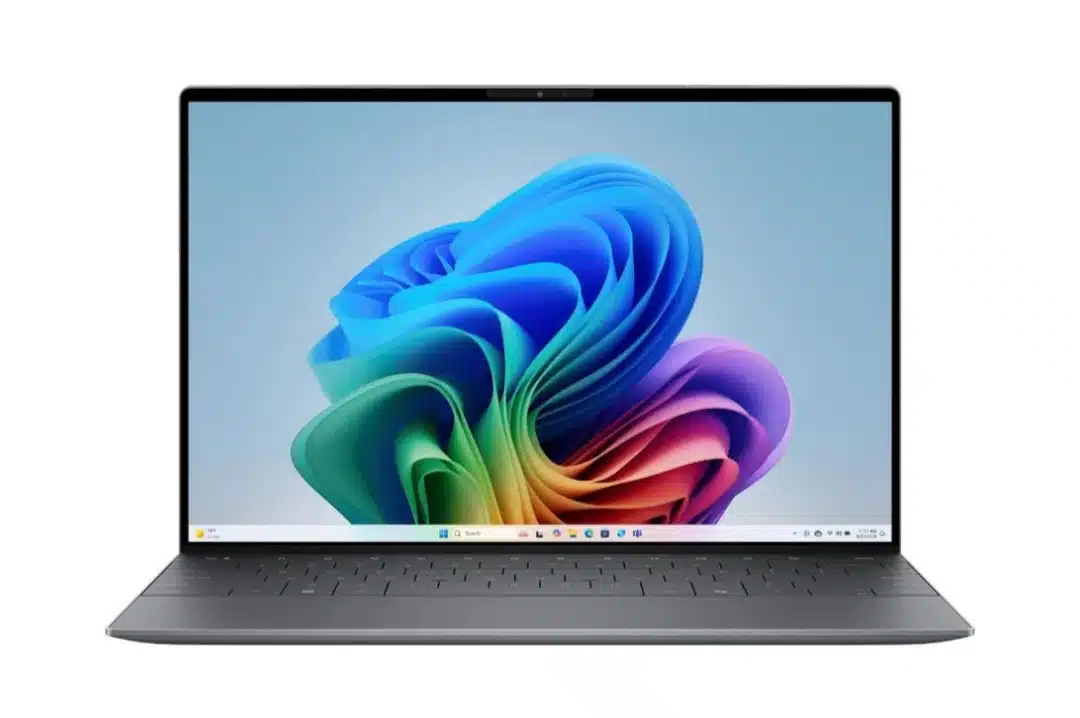
The Dell XPS 13 is a highly portable ultrabook with premium build quality. Its high-end Intel processors and impressive display suit it for light AI development and media tasks
| Specifications | Details |
| Processor | Intel Core Ultra 5 226V Series 2 (8MB Cache, 8 cores, up to 4.5 GHz) |
| Operating System | Windows 11 Home, Copilot+ PC |
| Graphics | Intel Arc graphics |
| Display | 13.4″, Non-Touch, FHD+ 1920×1200, 30-120Hz, Anti-Glare, 500 nit, Eyesafe, InfinityEdge |
| Memory | 16GB, LPDDR5X, 8533MT/s, integrated |
| Storage | 512 GB, M.2, PCIe NVMe, SSD |
| Case | Platinum |
| Keyboard | Platinum Backlit English Keyboard with Fingerprint Reader |
| Ports | 2 x Thunderbolt 4 (USB Type-C) with Power Delivery and DisplayPort |
| Dimensions (H x W x D) | 15:30mm x 295.30 mm x 199.10 mm /0.58 x 11:62 x7.84 |
| Weight | Starting from 1.18 kg |
| Touchpad | Multi-touch gesture-enabled precision touchpad with integrated scrolling |
| Camera | 1080p at 30 fps FHD RGB camera, Dual-array microphones360p at 15 fps IR camera, Dual-array microphones |
| Audio | Quad-speaker design (tweeter + woofer), Realtek ALC1318, 2W x 4 = 8W total |
| Chassis | Exterior Chassis MaterialsCNC-machined aluminum |
| Primary Battery | 3 Cell, 55 Wh, integrated |
| Power | 60W AC adapter, USB Type-C |
| Wireless | Intel Killer Wi-Fi 7 1750i (BE201) 2×2 + Bluetooth 5.4 Wireless Card |
| Slots | Not applicable |
Features: Intel Lunar Lake.
Why Buy
- Stunning OLED display
- Compact and portable
- Fast SSD performance
- Strong battery life
- Nice cooling functionality
- Impressive battery life
Why not Buy
- There is no slot selection.
- The audio quality is subpar
Latest Price Deals: Visit the official site.
Best For: Students and developers needing a compact solution.
5. Apple MacBook Air M3 (13-inch)

Apple’s MacBook Air M3 leverages the efficiency of Apple Silicon and adaptive RAM to deliver impressive performance for AI image processing tasks.
| Specifications | Details |
| Operating System | macOS |
| Memory | 16GB, configurable to 24GB |
| Storage | 512GB SSD, Configurable to 1 TB or 2TB256GB SSD, Configurable to 512GB, 1TB, or 2TB |
| Display | 13.6-inch (diagonal) LED-backlit display with IPS technology;12560-by-1664 native resolution at 224 pixels per inch500 nits brightness |
| Battery | 52.6-watt‑hour lithium‑polymer battery |
| Power | 30W USB‑C Power Adapter35W Dual USB‑C Port Compact Power Adapter |
| Color | Silver, Starlight, Space Gray, Midnight |
| Camera | 1080p FaceTime HD cameraAdvanced image signal processorwith computational video |
| Keyboard and Trackpad | Backlit Magic Keyboard with ambient light sensor |
| Dimensions (H x W x D) | 0.44 inch (1.13 cm)Width: 11.97 inches (30.41 cm)Depth: 8.46 inches (21.5 cm) |
| Weight | 1.24kg |
| Ports | Two Thunderbolt / USB 4 ports |
| Chip | M3, 8‑core CPU and 10‑core GPU |
| Manufacturing warranty | 90 days of free telephone technical support and a one-year limited warranty. |
Features: Seamless macOS integration, Magic Keyboard, Apple Silicon.
Why Buy
- Energy-efficient and quiet
- Lightweight and portable
- Excellent battery life
- Doesn’t overheat
- High image processor
Why not Buy
- Limited slots selection
Latest Price: From $1099
Best For: Video or photo editors focused on AI image processing and editing.
6. Dell XPS 16
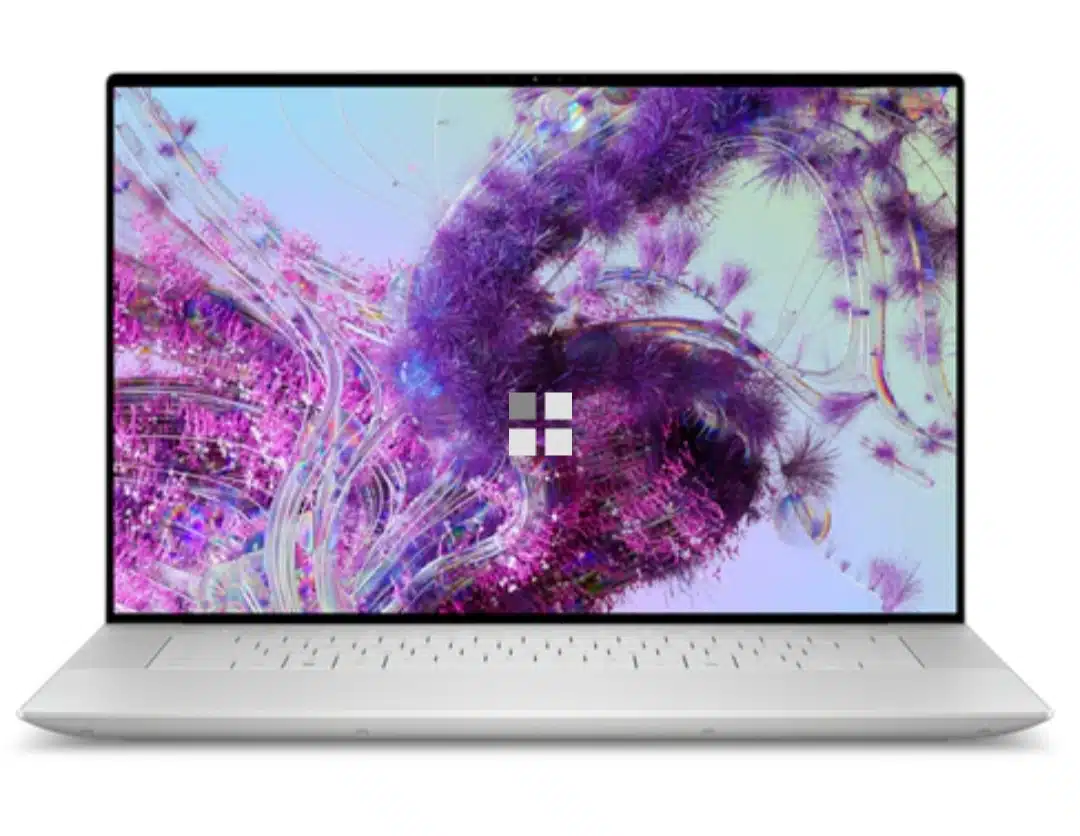
Known for its impressive performance capabilities, Dell XPS 26 excels in handling demanding workloads, including AI tasks, thanks to its integrated Neural Processing Unit (NPU).
| Specifications | Details |
| Operating System | Windows 11 Pro, English, French, Spanish |
| Processor | Intel Core Ultra 7 155H (24 MB cache, 16 cores, up to 4.80 GHz Turbo) |
| Graphics | NVIDIA GeForce RTX 4050, 6 GB GDDR6, 50 W |
| Display | 16.3″, Non-Touch, FHD+ 1920×1200, Anti-Glare, 500 nit, InfinityEdge |
| Memory | 32GB, LPDDR5X, 6400MT/s |
| Storage | 1 TB, M.2, PCIe NVMe, SSD |
| Case | Platinum |
| Keyboard | Platinum Backlit English Keyboard with Fingerprint Reader |
| Ports | For models with Intel Arc Graphics, NVIDIA RTX 4050, or 4060 GPUs:3 Thunderbolt 4 Gen 2 Type-C ports (DisplayPort Alt Mode/USB4, Power Delivery).For models with NVIDIA RTX 4070 GPU:2 Thunderbolt 4 Gen 2 Type-C ports (DisplayPort Alt Mode/USB4, Power Delivery. |
| Slots | 1 microSDXC v6.0 UHS-I/UHS-II card reader |
| Touchpad | Multi-touch gesture-enabled precision touchpad with haptic function, Seamless glass touchpad with haptics |
| Camera | 1080p at 30 fps FHD camera360p at 15 fps IR cameraDual-microphone array optimized with Waves MaxxVoice supporting VoIP |
| Primary | 6-Cell, 99.5Whr |
| Battery Life | Up to 28 hours with FHD+ |
| Power | 130W Type-C Adapter |
| Chassis | Gorilla Glass 3 palm rest in graphite or platinumCorning Gorilla Glass Victus on OLED cover glass |
| Dimensions (H x w xD) | 18.70 mm x 358.18 mm x 240.05 mm/0.74 x 14.10 x 9.50 |
| Weight | 2.20 kg for OLED display2.13 kg for FHD+ display and Intel Arc graphics |
| Audio and Speakers | Quad-speaker design with 3 W main x 2 channels + 2 W Tweeter x 2 channels = 10 W totalStudio quality tuning with Waves MaxxAudio Pro and Waves Nx.3D audio. |
Features: Powerful GPU, sleek design.
Why Buy
- Fast performance
- Springly keyboard
- Great for multitasking
- Premium OLED display quality
- Great sound quality
- Extended power life
- Great touchpad
Why not Buy
- Heavier than other laptops
- No excess upgradability
- Overheats during extensive use
- Limited slots selection
Latest Price: $2,159.99
Best For: AI image and video editing.
7. Acer Nitro 5
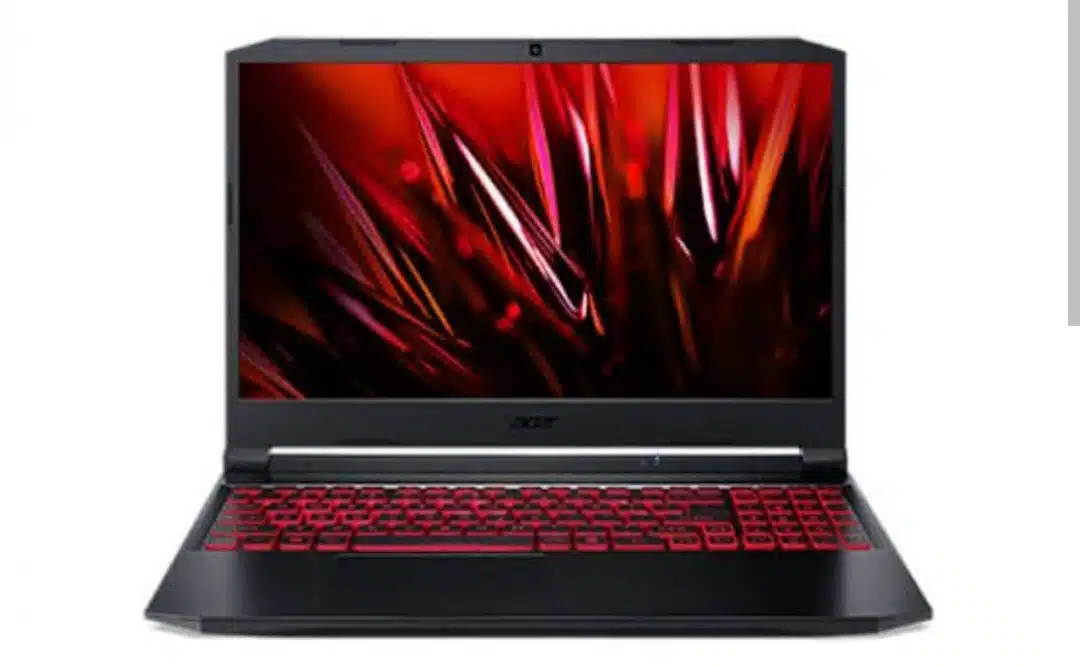
The Acer Nitro 5 is an ideal choice for AI-driven video tasks. Its impressive RAM ensures seamless video rendering and efficient handling of complex AI algorithms.
| Specifications | Details |
| Operating system | Windows 11 Home |
| Processor | 12th Gen Intel Core i7 |
| Graphics | NVIDIA GeForce RTX 30 Series |
| Memory | 32GB of DDR4 DDR4 3200 RAM |
| Storage | GEN 4 M.2 PCIe |
| Color | Black |
| Ports | HDMI 2.1, Intel Thunderbolt 41, and the newest USB 3.2 standard with Gen1 and 2 support. |
Features: Fast processing speed, dual-fan cooling, quad-exhaust, upper-air intake, NitroSense.
Why Buy
- Budget-friendly
- Decent GPU for entry-level AI enthusiasts
- Durable build
- Speed performance
- Upgradability options
Why not Buy
- Heavier and less portable.
- Limited storage capacity.
Latest Price Deals: Visit the Amazon store.
Best For: AI video generation.
8. MSI Katana GF66
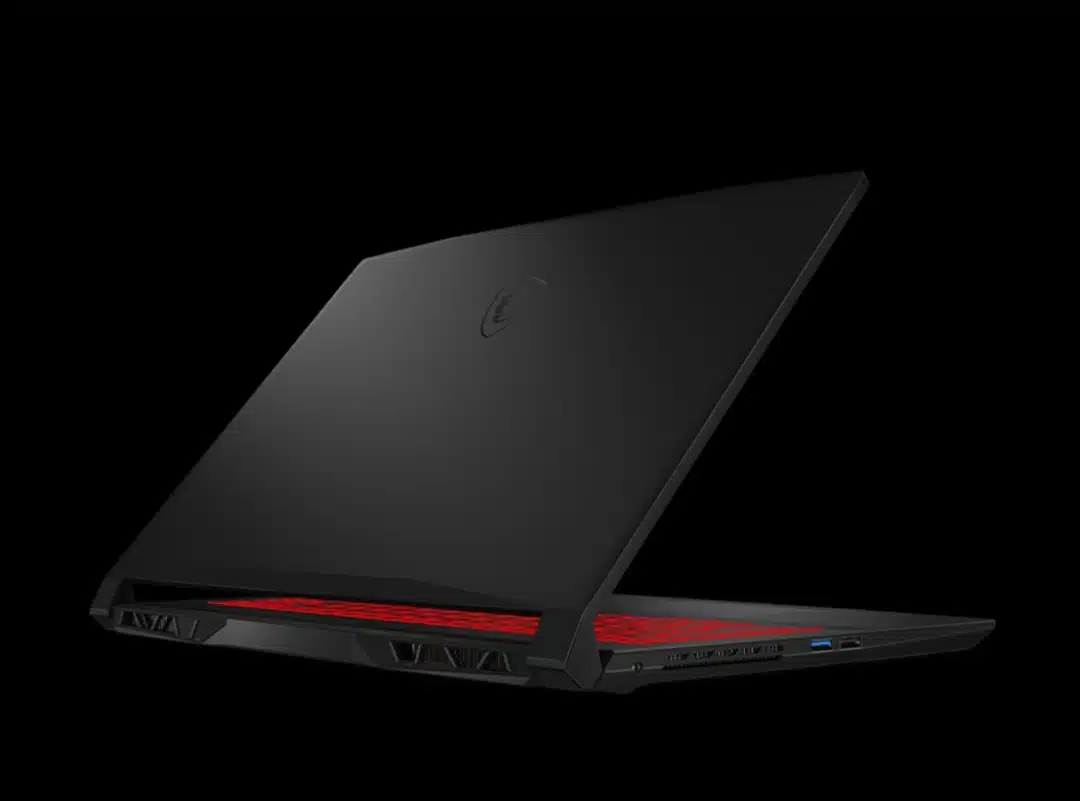
The Katana GF66 is a high-performance laptop designed for gaming and AI development productivity.
| Specifications | Details |
| Operating system | Windows 11 Pro |
| Processor | 11th Gen. Intel Core i7 |
| Display | 15.6″ FHD (1920×1080), 144Hz, IPS-Level |
| Graphics | NVIDIA GeForce RTX 3070 Laptop GPU 8GB GDDR6 |
| Chipset | Intel HM570 |
| Memory | DDR4-3200 Max 64GB, 2 Slots |
| Storage | 2x M.2 SSD slot (NVMe PCIe Gen3) |
| Keyboard | Single Backlit Keyboard (Red) |
| Audio | 1x Mic-in/Headphone-out Combo Jack/Audio2x 2W Speaker |
| Ports | 1x Type-C USB3.2 Gen12x Type-A USB3.2 Gen11x Type-A USB2.01x HDMI™ 2.1 (4K @ 60Hz)1x RJ45 |
| Battery | 3-Cell 53.5Whr / 4-Cell 90Whr Battery |
| Power | 180W adapter |
| Dimensions (H x W x D) | 359 x 259 x 24.9 mm |
| Weight | 2.25 kg |
| Webcam | Black |
| Color | HD type (30fps@720p) |
Features: Cooler boost. Multi-core.
Why Buy
- Affordable high-performance option
- Great for multitasking
- Sturdy build
- Upgradability options are available
- More ports available
Why not Buy
- Heavy
- Limited battery life.
- Inflexible keyboard
- Lower storage capacity.
Latest Price Deals: Visit the Amazon store.
Best For: AI video generation.
Why you need a specialized computer for AI
AI tasks demand specific hardware configurations that differ significantly from standard computing requirements, such as high-performance GPUs, which are essential for parallel processing and accelerating tasks like training machine learning models and running neural networks. Sufficient RAM to ensure smooth handling of large datasets, while ample and fast storage, such as NVMe SSDs, is critical for managing AI workflows that involve frequent read/write operations. Therefore, specialized computers equipped with these components provide the computational power to handle complex algorithms efficiently.
| Models | GPU | CPU | RAM | Storage | Best For |
| HP Spectre x360 14 | Integrated | Intel Core Ultra 7 155H | 16 GB | 1 TB | Casual AI developers |
| Lenovo ThinkPad X1 2-in-1 (Gen 9) | Integrated Intel Iris Xe | 11th Gen Intel Core i7 | 64 GB | 2 TB | Business professionals |
| Asus Zenbook S 16 (UM5606 | AMD Radeon 880M / | AMD Ryzen AI 9 365 / AI 7 350 | 24GB | 1TB / 2TB | Exploring AI and machine learning.l |
| Dell XPS 13 (Lunar Lake) | Integrated | Core Ultra 5 226V Series 2 | 16GB | 1TB | Students and developers |
| Apple MacBook Air M3 | Integrated 10 core | Integrated 8‑core | 16GB, configurable to 24GB | 1TB/2TB | AI image processing |
| Dell XPS 16 | NVIDIA GeForce RTX 4050 | Intel Core Ultra 7 155H | 32GB | 1 TB | AI image and video editing |
| Acer Nitro 5 | NVIDIA GeForce RTX 30 Series | 12th Gen Intel Core i7 | 32GB | GEN 4 M.2 PCIe | AI video development |
| MSI Katana GF66 | NVIDIA GeForce RTX 3070 | 11th Gen. Intel Core i7 | 64GB | 2x M.2 | AI video generation |
Future-proofing your AI computer investment
Invest in hardware that supports emerging standards to ensure your system remains relevant as AI technology advances. Opt for GPUs compatible with CUDA and Tensor cores, CPUs with high core counts, and motherboards supporting PCIe Gen4 or Gen5 for future upgrades. Ensure ample RAM capacity and storage expansion options. Additionally, prioritize modular systems that allow for incremental upgrades.
Challenges and considerations in selecting AI computers
Selecting an AI computer comes with challenges like high initial costs and energy consumption. High-performance systems often require significant investment, but choosing scalable configurations can mitigate expenses over time. Energy consumption is another concern; opting for energy-efficient components can reduce operational costs. Thoroughly researching warranties and customer support can also prevent potential setbacks in hardware maintenance.
Frequently asked questions (FAQs) about AI computers
- What is the best computer for AI tasks?
- The best computer for AI tasks depends on the specific workload. Dell XPS 13 (Lunar Lake) and Asus Zenbook S 16 (UM5606) are ideal for heavy-duty AI development. For portability, HP Spectre x360 14 is a good option.
- Which computer is ideal for AI image processing?
- Apple MacBook Air M3, and Dell XPS 16 high-resolution displays are excellent choices.
- What are the best GPUs for AI projects?
- NVIDIA RTX 4090
- NVIDIA A100
- NVIDIA RTX 3080
- AMD Radeon RX 7900 XTX
- How much RAM do I need for AI tasks?
- For basic AI tasks, 16GB of RAM is sufficient, but for larger datasets and deep learning models, 32GB or more is recommended.
Bottom line,
Choosing the right computer for AI tasks depends on your needs, budget, and workload. High-performance systems with powerful GPUs, ample RAM, and fast storage are essential for complex AI processes like image processing and video generation. Budget-friendly options, like the MSI Katana GF66 and Acer Nitro 5, make AI accessible to beginners without compromising on key features. Investing in a future-proof system ensures you stay equipped as AI technology evolves, making it crucial to prioritize scalability, efficiency, and compatibility when selecting your AI-ready computer.
DISCLAIMER!
“This publication, review, or article (“Content”) is based on our independent evaluation and is subjective, reflecting our opinions, which may differ from others’ perspectives or experiences. We do not guarantee the accuracy or completeness of the Content and disclaim responsibility for any errors or omissions it may contain.
The information provided is not investment advice and should not be treated as such, as products or services may change after publication. By engaging with our Content, you acknowledge its subjective nature and agree not to hold us liable for any losses or damages arising from your reliance on the information provided.
Always conduct your own research and consult professionals where necessary.”

